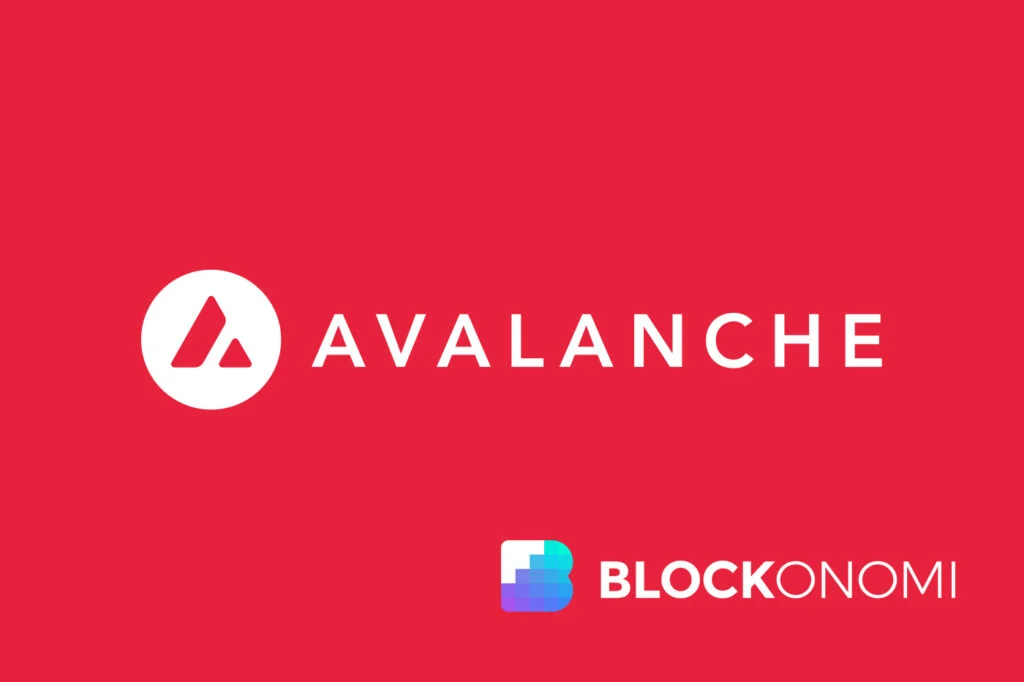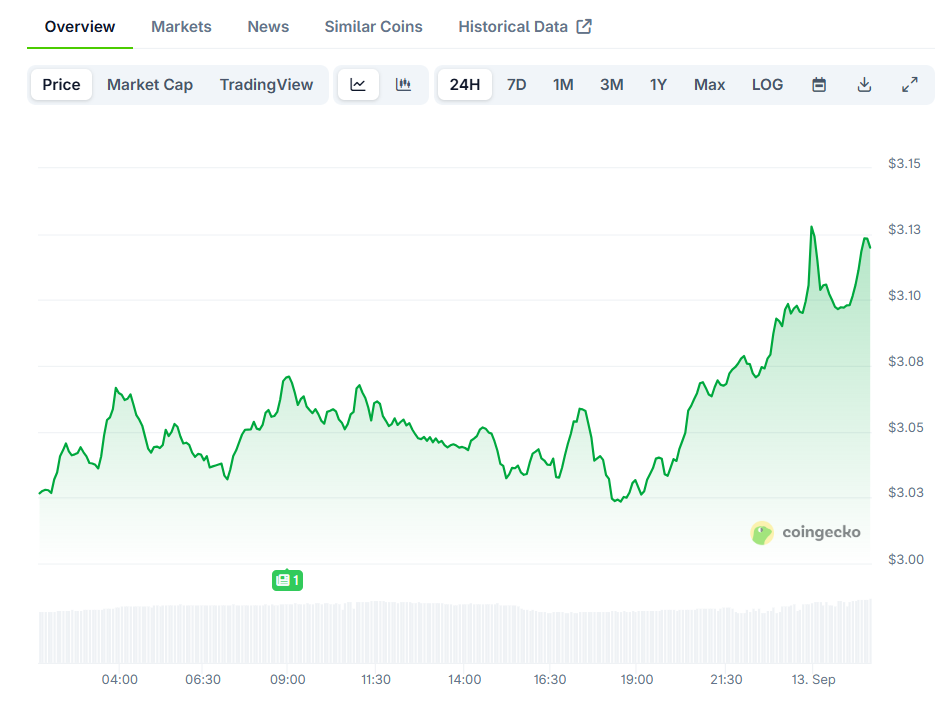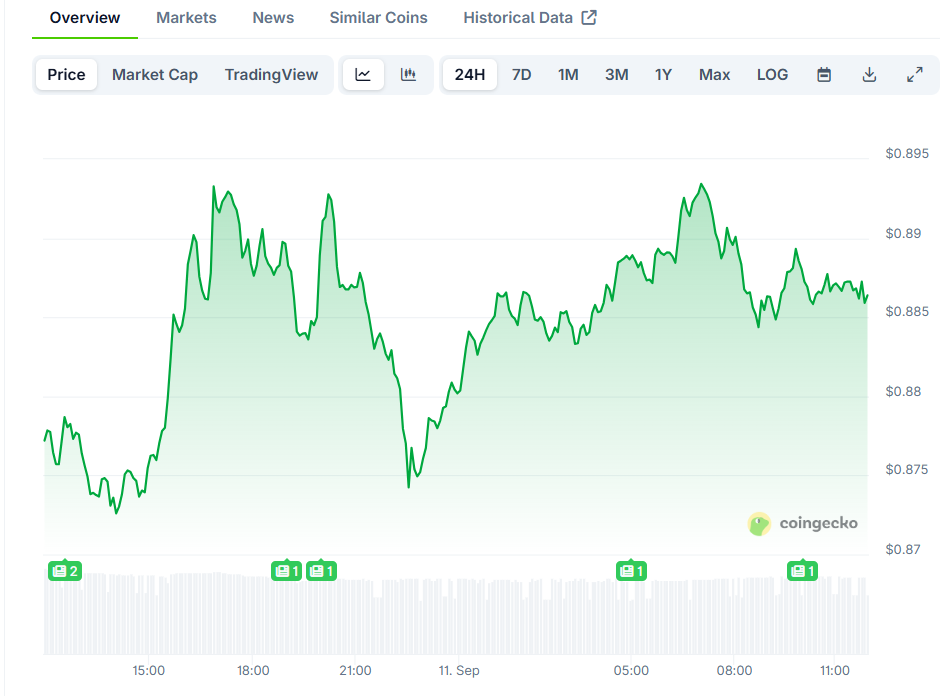Where to Buy Avalanche AVAX Crypto: Complete Guide

Avalanche, one of the famous Ethereum killers, is the fastest smart contract network based on time-to-finality. The blockchain protocol enables the development of decentralised applications (dApps) and subsequent access to the decentralised finance (DeFi) ecosystem.
Investors are looking to learn how to buy Avalanche’s utility token, AVAX, to gain from its high throughput and low fees.
Interested in this ground-breaking solution? This review should come in handy. We consider the layer-0 blockchain solution and the best platform to buy the token.
Where to Buy Avalanche AVAX
This section is our top picks of where and how to buy the Avalanche token. We chose these based on our experience of using them and considered fees, security, payment options and reputation.
- eToro: Our Top Pick & Easy to Use Platform
- Binance: Largest Crypto Exchange with Low Fees
- Coinbase: Highly Regarded and Easy to Use for Beginners
- FTX: Great Exchange for Newbies & Advanced Users
Visit The Top Pick
eToro USA LLC; Investments are subject to market risk, including the possible loss of principal.
 eToro: Easy to Use Platform
eToro: Easy to Use Platform
eToro is the overall best exchange to purchase crypto coins & tokens. It is one of the most popular social trading platforms in the investment space. This exchange gives traders and investors full access to trade over 78 crypto assets, including Bitcoin, Ethereum, and many more.
The broker’s user-friendly interface and simple layout is appealing to investors with no prior knowledge of crypto trading. To begin a trading journey on eToro, investors have to create an account. With a minimum deposit of as little as $10, US and UK-based investors can purchase tokens and other crypto assets seamlessly.

Investors also enjoy zero fees on all USD deposits, including debit card deposits. However, there is a standard fee charge of $5 on all withdrawals, a 1% flat fee for every completed trade on the platform, and a $10 inactivity fee charged monthly after an investor fails to trade for a year.
The broker offers seamless deposit methods that range from bank transfer and direct crypto deposits to debit/credit card and payment processors like PayPal. Although all USD deposits are fee-free, all bank transfer deposits have a fixed minimum of $500.
Another major feature that makes eToro stand out is its impressive CopyTrader feature. This integration enables novice investors to find well-experienced traders on the platform and copy their trade strategies to earn when they earn.
In terms of security, eToro scales to the top as it features two-factor authentication (2FA) protocol, advanced encryption, and masking technologies to secure all users accounts. eToro accepts users in over 140 countries and is regulated by top financial authorities like the U.S. Securities and Exchange Commission (SEC), Financial Conduct Authority (FCA), Australian Securities and Investments Commission (ASIC), and the Cyprus Securities and Exchange Commission (CYSEC). The exchange is also registered with the Financial Industry Regulatory Authority (FINRA).
Pros
- Overall best social trading platform to buy
- User-friendly interface
- CopyTrader and CopyPortfolio
- Highly regulated broker
Cons
- Charges an inactivity fee
- Charges a withdrawal fee
eToro USA LLC; Investments are subject to market risk, including the possible loss of principal.
 Binance: Reputable Exchange with High Liquidity
Binance: Reputable Exchange with High Liquidity
Binance is the largest cryptocurrency trading exchange in daily trade volumes. The exchange offers investors full access to trade over 600 crypto assets.
The renowned platform also features a well-detailed learning curve and advanced trading tools that support well-experienced traders and investors looking to learn how to buy different cryptos. Although Binance features a user-friendly interface that facilitates a great user experience, it is more suited for well-experienced traders.
Read: Our Full Binance Review Here
Binance has a minimum deposit of $10. This enables investors to kickstart their investing journey with low fees. Investors can also initiate deposits through seamless payment methods like wire transfers, credit/debit cards, peer-to-peer (P2P) payments, and other e-wallet solutions.

Unlike eToro, Binance deposits come with a fee that varies based on the payment method used. For instance, the global exchange charges a standard fee of up to 4.50% for all deposits made with a debit/credit card.
All investors enjoy very low fees when trading on Binance, as it charges a standard trading fee of 0.1%. For investors that buy using Binance token (BNB), a discount of 25% on trading fees will be applied.
In addition, investors can rest assured that their funds and data are well protected whenever they trade on Binance. The broker features top-notch security measures like two-factor authentication (2FA), cold storage to keep most coins, whitelisting, and advanced data encryption to protect funds and data. Binance functions effectively in over 100 countries and has a spin-off regulated platform (Binance.US) that tends to US-based traders and investors.
Pros
- Trading fees at 0.01%
- High liquidity
- Wide range of payment methods
- 600+ crypto assets in library
Cons
- Interface is suited for advanced traders
- US-based customers cannot trade most coins via its subsidiary
 Coinbase: Simple & Easy to Use Exchange
Coinbase: Simple & Easy to Use Exchange
Coinbase is also a great option for investors looking for how to buy the crypto seamlessly. The US-based crypto trading platform enables users to buy, sell, and stake cryptocurrencies with zero complexity.
Coinbase integrates a user-friendly interface that simplifies crypto trading. The crypto trading platform supports well over 10,000 blockchain-based assets.
Read: Our Full Coinbase Review Here
The exchange’s signup and verification process take less than 10 minutes. For traders looking to invest easily, Coinbase is a great alternative to Binance.
Coinbase has a minimum deposit of $2, the lowest minimum deposit in the market presently This exchange also offers a wide range of deposit methods like automated clearing house (ACH), Wire transfer, debit card, and e-wallet solutions, as well as cashouts in local currencies like USD, GBP, and EUR. Coinbase charges up to 3.99% for debit card deposits.

Investors enjoy a 4% cash back reward whenever a Coinbase debit card is used for crypto purchases.
For fees, Coinbase charges a competitive fee of 0.5% – 4.5% depending on the payment method, cryptocurrency type, and transaction sizes.
Coinbase has evolved from a traditional exchange to a versatile platform with great services dedicated to retail and institutional investors, such as an in-built exchange wallet, self-issued cash back visa card, staking, derivatives, asset hubs, ventures, and many more.
Furthermore, Coinbase has in-built security practices like 2FA verification as an added security layer to investors’ usernames and passwords, crime insurance that secures digital assets from theft and fraud, and many more.
Also, Coinbase is licensed by the Securities and Exchange Commission (SEC) and regulated by top financial authorities like Financial Conduct Authority (FCA), Financial Crimes and Enforcement Network (FinCEN), and the New York State Department of Financial Services (NYSDFS).
Pros
- Beginner-focused
- Licensed and reputable platform
- Insurance in case of hacks
- Low minimum deposit
Cons
- High fee compared to competitors
- No credit card deposits for US customers
 FTX: A Top Exchange
FTX: A Top Exchange
FTX rounds up our list of best exchanges to purchase coins & tokens. It is a leading centralized multi-assets exchange that offers derivatives, volatility products, NFTs, and leveraged products. FTX also supports the most commonly traded cryptocurrencies.
Read: Our Full FTX Review Here
FTX’s wide range of tradable assets and user-friendly desktop and mobile trading platforms attracts all types of crypto investors from all levels, including newbies to well-experienced professionals. With support for over 300 cryptocurrencies for spot trading, FTX has one of the strongest bases of coins.
FTX does not have a minimum deposit balance. Maker trades on FTX costs between 0.00% and 0.02%, while taker fees costs between 0.04% and 0.07%. There is also a $75 charge for any withdrawals less than $10,000. Deposit channels vary from bank wire and bank instant deposits to debit/credit card to wire transfer and other methods like silver exchange network (SEN) and signature SIGNET.

FTX implements two-factor authentication (2FA) protocol for security when signing up for a new account. Additional security features include sub-accounts with configurable permissions, withdrawal address and IP whitelisting, and Chain analysis to monitor any suspicious activity. Also, this exceptional broker maintains its own insurance fund. All these security integrations are by standard requirements.
FTX operates in several countries, and US-based traders can use FTX.US — a fully regulated subsidiary that enables seamless trading services to residents of the United States of America.
Pros
- Large selection of cryptocurrencies and other digital assets
- Very competitive fees
- Great trading platforms
- Offers crypto derivatives
Cons
- FTX.US has limited coins
What Is Avalanche?
Avalanche (AVAX) is a multi-chain smart contract designed to operate as a secured, globally distributed decentralised network.
The Avalanche ecosystem has been compared to the Ethereum network. However, it has an upper advantage because it is compatible with Ethereum. Three blockchains power avalanche to create an interoperable, trustless network that allows developers to build upon it seamlessly.

Like many other blockchains, Avalanche supports the creation and operation of decentralised applications (dApps). Its smart contracts are written in the same Solidity programming language that was used to write Ethereum’s smart contracts. As a result, Avalanche can create easier interoperability with Ethereum – as seen in decentralised finance (DeFi) protocols, like Curve Finance and Aave, that operate seamlessly across Avalanche and Ethereum.

How Avalanche Works
Avalanche ecosystem supports three in-built blockchains that process different tasks. Here are the blockchains and how they power the Avalanche ecosystem:
- Exchange Chain (X-Chain) – Exchange chain is a decentralised platform that enables the creation, minting, and trading of digital assets. These assets could be stablecoins, utility tokens, non-fungible tokens (NFTs), and crypto assets. Avalanche’s native token, AVAX, pays all transaction fees on the X-chain.
- Platform Chain (P-Chain) – Platform Chain is responsible for all network utilities. It is a metadata platform that controls Avalanche’s validators and tracks and facilitates the creation of new subnets. These subnets allow network developers to create their blockchains easily.
- Contract Chain (C-Chain) – Contract blockchain uses the Ethereum Virtual Machine (EVM), powered by Avalanche, to simplify the conversion of Ethereum decentralised application (Dapp) developers. Users can migrate their Dapps to the Contract Chain. It also supports popular Ethereum features like MetaMask, Remix, Truffle Suite, Embark Platform, and Web3.
Transactions on the Avalanche ecosystem are validated via the Avalanche consensus protocol, which integrates a delegated proof-of-stake (DPoS) system. Validators on the network secure and approve transactions. The DPoS network is much faster when compared to proof-of-stake or proof-of-work networks, and this is due to their smaller consensus requirements. The Avalanche network can contain millions of validators all participating in the network, providing layers of decentralisation.
Avalanche consensus
For a blockchain to effectively validate transactions, it needs to adopt a consensus mechanism. Avalanche uses a novel consensus module built on the foundation of proof-of-stake (PoS). Whenever a transaction is processed, a validator node receives it and runs a quick sample of other validators, looking for agreement.
In this way, the original validator sends out a message to other validators, who in turn send the same message to other validators – and on and on until the entire network can reach a consensus.
AVAX Coin
AVAX is the utility token powering the Avalanche ecosystem. Users receive benefits and pay fees using this token. AVAX is also a speculative investment option as it can be used to generate passive income via staking.
This crypto asset basically powers all operations on the Avalanche blockchain. This cuts across all dapps working on it. Over 350 projects are deployed on the Avalanche ecosystem, and more are expected in the future. The more projects and integrations there are, the more valuable AVAX gets. Currently trading at $23.80, investors can be excited about the future of this token.
What Can You Do With Avalanche?
Avalanche was created to solve multiple issues in most blockchain networks today. It eradicates centralisation by providing a trusted, viable alternative network like Ethereum.
Since Avalanche is scalable, it can rapidly process transactions on par with payment processors like VISA and PayPal. The blockchain can process about 6,500 transactions per second (TPS).
Regarding cost, Gas fees on the Avalanche network are leased and more affordable than other blockchains like Ethereum.
Avalanche Wallets
As important as learning how to buy Avalanche is, it is also crucial to learn how to store Avalanche and the type of wallet to employ. A crypto wallet enables investors to receive, send, store, and secure their crypto and digital assets. However, they differ in type.
Here are the different types of wallet available to store your AVAX
Software Wallet
Hot wallets, also called software wallets, are one of the most popular cryptocurrency storage options. They are always online, hence the affiliation with the ‘hot’ tag. Investors can easily get a hot wallet once they open an account with a crypto exchange. This allows them to store and manage their private keys, which prove their ownership of their assets to the blockchain network. Hot wallets are usually more convenient for everyday crypto transactions and can be custodial or non-custodial.

A custody wallet is responsible for storing assets to an exchange or a third-party platform. The user only places an order for a transfer or receipt, and the exchange signs off on the transaction, much like the traditional banking system. Meanwhile, a non-custodial or self-custody wallet gives the full responsibility to the end-user.
Hot wallets are usually free, but they are largely considered less secure due to their constant internet connectivity. An instance of a hot wallet is the Binance Wallet.
Hardware Wallet
A Hardware wallet is a device which has been created to provide an extra layer of security when interacting with your various cryptocurrency wallets.
Normally you would use your private key to move funds, the problem is though, if your computer has been compromised with malware or a virus, it is possible for your private keys to be captured and used to steal your funds.

With a hardware wallet, the private keys are stored on the device and never exposed to your computer, which means even if you are infected with such a program your private keys will remain safe. These options are safest way to store your crypto if you have more than a small amount.
Popular examples of cold storage offerings are the Ledger and Trezor line of hardware wallet solutions, read our reviews:
Mobile wallet
A mobile wallet is essentially a hot wallet on a smartphone device. They offer users an even more convenient way to use their coins for daily activities. Mobile wallets store and manage users‘ private keys while enabling them to pay for things they love with their digital assets.

These wallets are usually free and always online for transactions to be processed. Popular mobile wallets are eToro Money Wallet and Coinbase Wallet.
Desktop wallet
A desktop wallet is a PC version of a hot wallet. It is essentially software that an investor downloads into their personal computer or laptop for easy interaction with their digital coins. They also offer a browser extension which allows users to interact using an extension instead of downloading the entire software. Desktop wallets are also hack-prone due to their online nature. A popular example is the Exodus Wallet.
Paper Wallet
The paper wallet is arguably the oldest form of crypto wallet. They are no longer common in the modern crypto industry. It contains users‘ public and private keys. The paper wallet is the least secure type of wallet as it can easily be lost, stolen, or torched.
Best Wallet for Avalanche
For investors who want custodianship and peak security, the eToro money wallet is the best option. This wallet offers a user-friendly interface that appeals to both beginners and well-experienced investors, as well as control and sign-off transactions on behalf of users.
Apart from security, eToro offers many services, including an in-built crypto exchange, real-time crypto market access for converting crypto assets to other assets without sending tokens to other wallets, and an advanced signature mechanism to keep the tokens safe 24/7.
Existing eToro users can access the eToro money wallet with the same login details used on the main platform.
How To Buy The Avalanche On eToro
Avalanche has proven to be very scalable and has the potential to take a great amount of market share in blockchains that provide decentralised finance apps. Want to buy AVAX? eToro is the best overall platform to buy Avalanche in less than 10 minutes.
This broker offers low fees, high liquidity, a wide range of crypto offerings, top-notch security, and in-built wallet functionality. To get started seamlessly, follow these detailed steps:
eToro USA LLC; Investments are subject to market risk, including the possible loss of principal.
1. Sign Up
Visit eToro and click on the ‘Start Investing’ visible in the middle of the home page. This will redirect the investor to a registration page where they must enter a username, email address, and a strong password.

They can skip this process and sign up by connecting to a Google or Facebook account.
2. Verify ID
As a regulated broker, eToro requires that investors complete a know-your-customer (KYC) process on eToro. This process enables them to unlock this broker’s full trading features and functionalities. To get started, click on the newly created profile icon and proceed to select the ‘Verification’ icon. Once done, upload a valid ID card. This could be in the form of a driver’s license or any government-issued identity card.

Investors will also be asked to submit a recent utility bill or bank statement to validate their addresses.
3. Deposit Funds
Once the verification process is complete, investors can proceed to initiate a deposit on their newly created eToro account. Click on the action tab, select ‘Deposit Funds’, choose a payment channel, and input the investment amount.

Investors in the UK and US can invest with a minimum deposit of $10 with cards and a minimum deposit of $500 for bank transfers. Once done, tap on the ‘Deposit’ icon to place an order.
Buy AVAX
This is the final step to buy AVAX on eToro. Locate the search bar on top of the page, type ‘AVAX’, and click on the pop-up result. Proceed to click on ‘Trade’ to open an order page and input how many AVAX tokens to purchase. Click on ‘Open Trade’ to complete the purchase.
Conclusion
Avalanche is one of the new generations of protocols making waves. Because it is the fastest protocol by time-to-finality, top crypto investors are adding the AVAX token to their portfolio to tap into the platform’s benefits.
In this guide, we explained how to buy the Avalanche token on our number one recommended platform, eToro. The crypto broker operates as a social network, allowing investors to trade, learn and interact with one another. It also has a user-friendly interface, competitive fees, and CopyTrader and CopyPortfolio for optimised user profit-making.
The post Where to Buy Avalanche AVAX Crypto: Complete Guide appeared first on Blockonomi.






